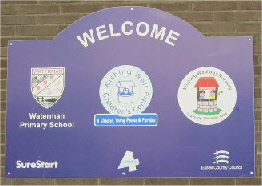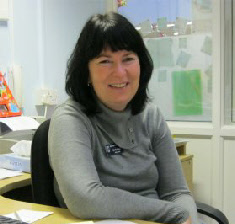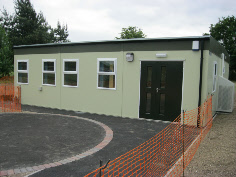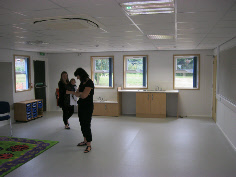Talk to Rochford Life on 0786 342 7294 or E-mail us. For numbers for shops, business etc. see page below.


Make a point of visiting us weekly! Tell a friend about us.
Schools
Waterman Primary
Waterman Primary

Waterman Primary School,
The Boulevard, Rochford,
SS4 1QF
Head: Mrs.Welch
01702 546237
www.watermanprimaryschool.ik.org
admin@waterman.essex.sch.uk
admin@waterman.essex.sch.uk
To return to Waterman’s front page, please
CLICK HERE
CLICK HERE

Regular readers of Rochford Life will know that over the past two and a half years we have kept a regular watch over Waterman School with the real help from the head. The end of summer term is an especially busy and tiring time in school life and for that reason we are especially grateful to Rachel for giving us her time at the end of a tiring day. Because it is a long interview, we have followed our standard practice of providing sub-headings to aid clarity of reading. Those headings are:
- Changes in Curriculum
- Class Changes
- Thoughts about Ofsted
- International Links
- Other Changes
-
“It’s a New Day!”
Talking with Rachel Welch, Head of Waterman School about changes on the way.
(4th July 2013)
Talking with Rachel Welch, Head of Waterman School about changes on the way.
(4th July 2013)
We hope, as you read this article, you will agree with us that this has turned out to be a very informative, interesting and insightful conversation.
Changes in Curriculum
Rochford Life: I’m sorry, I’ve caught you on a busy day. I believe you’ve only just got back from a trip to London today. Where have you been?
Rachel: Two of us have been to Lambeth to look around a school, watching some teachers teaching as they are working on their new curriculum. Ours is about to change because we’ve come to the end of our three year cycle that we planned. It was obviously for three classes and of course in September we’ll have four classes. We’ve now got our new classroom in the grounds which will officially be opened on the 17th of this month. Having previously only had three classes we would have had to have rejigged the curriculum anyway, but we are also looking at new approaches.
RL: So how have you been going about this?
Rachel: The School Council were given the task of finding out what the children wanted to learn. They came back to our Council meeting with lots of ideas, with themes that they wanted, and then the teachers had a look at them and grouped them together. Kelly has been working on a curriculum map based on those themes. I then went to a school in Swindon to look at their curriculum. For them everything is around ‘a big question’, so we had a look at what Kelly had done so far and instead of just having themes and stating what they are, we’re changing them so they are a question. You then show the children some form of stimulus which might be a film or a picture or an artefact and they come up with more questions, so it is about engaging them more in the learning process and not just presenting them with lots of information. It’s more about enquiry based learning.
RL: What is at the heart of it?
Rachel: With the new approach to the curriculum the big question is going to be, “What does the Future hold?” and to start it off the teachers will show a PowerPoint presentation of slides and photographs and images and sound. Part of the afternoon will be watching that and coming up with their own questions and then the teachers will take those questions and plan for next term. There have obviously got to be some things that are covered so they have to carefully choose the stimulus to show and steer their questions in a certain way.
RL: Forgive me for playing devil’s advocate here, but won’t the cynic say, well all you are doing is dressing up the same old stuff with new approaches?
Rachel: The idea is that the children have got to answer the question “What does the Future hold?” in some way, and part of that will be learning what they want to learn, and part of it will be the things they need to learn, but they are going to be involved in the process more and what the end product will look like. The end product has got to answer the question, so it could be a class assembly, it could be a film, some way of answering the question to show people – and parents, we hope.
RL: So much more child orientated, child developing?
Rachel: A head that we heard today was saying very similar things and also sought to include more outdoor learning which is something we want to do. She was part of Forest Schools which one of my new teachers wants to take on (www.forestschools.com). It’s supposed to be very good and impacts on standards and builds independence and resilience and that sort of thing that our children need. One of our Ofsted issues was about children being more independent and being in control of their learning.
RL: But mainly by outdoor activities by the sound of it?
Rachel: Yes. Basically they have a lesson a week outside in tents, with willies, whatever the weather, they build fires, they use saws to cut wood, and when we think of our boys in particular we believe it is going to appeal to them to have someone who is obviously trained and who can take them out. Children are introduced to risks and know what the risks of outdoors are, and judge for themselves. Some of our Year 6’s have just come back from Belchamps and they just loved that outdoor stuff. This all impacts on learning in general, because they then love to come to school. It’s just another aspect of education that we are exploring at the moment.
Changes in Curriculum
Rochford Life: I’m sorry, I’ve caught you on a busy day. I believe you’ve only just got back from a trip to London today. Where have you been?
Rachel: Two of us have been to Lambeth to look around a school, watching some teachers teaching as they are working on their new curriculum. Ours is about to change because we’ve come to the end of our three year cycle that we planned. It was obviously for three classes and of course in September we’ll have four classes. We’ve now got our new classroom in the grounds which will officially be opened on the 17th of this month. Having previously only had three classes we would have had to have rejigged the curriculum anyway, but we are also looking at new approaches.
RL: So how have you been going about this?
Rachel: The School Council were given the task of finding out what the children wanted to learn. They came back to our Council meeting with lots of ideas, with themes that they wanted, and then the teachers had a look at them and grouped them together. Kelly has been working on a curriculum map based on those themes. I then went to a school in Swindon to look at their curriculum. For them everything is around ‘a big question’, so we had a look at what Kelly had done so far and instead of just having themes and stating what they are, we’re changing them so they are a question. You then show the children some form of stimulus which might be a film or a picture or an artefact and they come up with more questions, so it is about engaging them more in the learning process and not just presenting them with lots of information. It’s more about enquiry based learning.
RL: What is at the heart of it?
Rachel: With the new approach to the curriculum the big question is going to be, “What does the Future hold?” and to start it off the teachers will show a PowerPoint presentation of slides and photographs and images and sound. Part of the afternoon will be watching that and coming up with their own questions and then the teachers will take those questions and plan for next term. There have obviously got to be some things that are covered so they have to carefully choose the stimulus to show and steer their questions in a certain way.
RL: Forgive me for playing devil’s advocate here, but won’t the cynic say, well all you are doing is dressing up the same old stuff with new approaches?
Rachel: The idea is that the children have got to answer the question “What does the Future hold?” in some way, and part of that will be learning what they want to learn, and part of it will be the things they need to learn, but they are going to be involved in the process more and what the end product will look like. The end product has got to answer the question, so it could be a class assembly, it could be a film, some way of answering the question to show people – and parents, we hope.
RL: So much more child orientated, child developing?
Rachel: A head that we heard today was saying very similar things and also sought to include more outdoor learning which is something we want to do. She was part of Forest Schools which one of my new teachers wants to take on (www.forestschools.com). It’s supposed to be very good and impacts on standards and builds independence and resilience and that sort of thing that our children need. One of our Ofsted issues was about children being more independent and being in control of their learning.
RL: But mainly by outdoor activities by the sound of it?
Rachel: Yes. Basically they have a lesson a week outside in tents, with willies, whatever the weather, they build fires, they use saws to cut wood, and when we think of our boys in particular we believe it is going to appeal to them to have someone who is obviously trained and who can take them out. Children are introduced to risks and know what the risks of outdoors are, and judge for themselves. Some of our Year 6’s have just come back from Belchamps and they just loved that outdoor stuff. This all impacts on learning in general, because they then love to come to school. It’s just another aspect of education that we are exploring at the moment.
Class Changes
RL: And at the same time, you’re having a new fourth class, you say?
Rachel: Yes, but we’re going to start it when we have our class swap afternoon on the 11th. We’ve obviously employed another teacher and she is going to be in Years 3 & 4. Louise is moving down to Years 1 & 2 and Jane is moving across to just have Foundation on their own. When we do that the children spend the afternoon in their new class and they have to decide on their new class name, because that was another thing the School Council said, with a new theme for names. We had African animals this year and the vote for next year was for Flower names.
RL: So the new Foundation class is getting a new classroom, I understand?
Rachel: Yes, we’ve been very fortunate really because it’s been the first time that Essex County Council have used the firm that has been providing the demountable, and so they were quite keen to get the first one under way, and because it is over on the field and doesn’t affect school running, we felt the earlier we could have it the better, so we can resource it and kit it out, and now it’s done.
RL: Your numbers for September are up in the eighties aren’t they?
Rachel: Yes, eighty six we think, and it may even be more than that. Considering three years ago the school was at its lowest at thirty one, we’re very pleased how things have changed.
RL: And at the same time, you’re having a new fourth class, you say?
Rachel: Yes, but we’re going to start it when we have our class swap afternoon on the 11th. We’ve obviously employed another teacher and she is going to be in Years 3 & 4. Louise is moving down to Years 1 & 2 and Jane is moving across to just have Foundation on their own. When we do that the children spend the afternoon in their new class and they have to decide on their new class name, because that was another thing the School Council said, with a new theme for names. We had African animals this year and the vote for next year was for Flower names.
RL: So the new Foundation class is getting a new classroom, I understand?
Rachel: Yes, we’ve been very fortunate really because it’s been the first time that Essex County Council have used the firm that has been providing the demountable, and so they were quite keen to get the first one under way, and because it is over on the field and doesn’t affect school running, we felt the earlier we could have it the better, so we can resource it and kit it out, and now it’s done.
RL: Your numbers for September are up in the eighties aren’t they?
Rachel: Yes, eighty six we think, and it may even be more than that. Considering three years ago the school was at its lowest at thirty one, we’re very pleased how things have changed.

The new roomy classroom for the Foundation class in September

Thoughts about Ofsted
RL: Yes, your last Ofsted report as ‘Good’ was very encouraging wasn’t it?
Rachel: Yes, but we’re not complacent about it. There are so many things that can affect it: the day when the inspectors come, data is still very important, and who your staff are on the day, and when the school is small, it only takes one or two things to tip the balance.
RL: Yes, but surely Inspectors see through the glitches of the day and see how it is really working.
Rachel: Well, yes, and that’s why we were really pleased we had ours like we did, because we thought we had another year to go and we weren’t in the slightest way prepared; it really was out of the blue, and the Inspectors saw us as it is every day. There just wasn’t time to put on a show. I think it was early for us because we were still classed as vulnerable, but data hadn’t dipped and that is normally a trigger. Often a new head comes and that can be a trigger, but that hadn’t happened and so I think it was purely because of how vulnerable we had been in the past.
RL: Are you just happy with ‘Good’ or is there a pressure to aim for ‘Excellent’
Rachel: Well, only 7% of schools from needy areas become outstanding. I was pleased that we got a ‘Good’ the second time around, because coming out of ‘Special measures’ to ‘Good’, people were dubious that that was the right grade. I wasn’t the substantive head then either, and when I became the substantive head there was part of me that wanted to show that things had really changed. I was pleased when we got ‘Good’ again, but you are always moving forward, or the framework changes, and criteria required to achieve ‘Good’ will probably increase, and so it all changes. New children also bring new challenges, especially with increased numbers.
To continue to Part 2 of this article, please CLICK HERE
Top of Page
RL: Yes, your last Ofsted report as ‘Good’ was very encouraging wasn’t it?
Rachel: Yes, but we’re not complacent about it. There are so many things that can affect it: the day when the inspectors come, data is still very important, and who your staff are on the day, and when the school is small, it only takes one or two things to tip the balance.
RL: Yes, but surely Inspectors see through the glitches of the day and see how it is really working.
Rachel: Well, yes, and that’s why we were really pleased we had ours like we did, because we thought we had another year to go and we weren’t in the slightest way prepared; it really was out of the blue, and the Inspectors saw us as it is every day. There just wasn’t time to put on a show. I think it was early for us because we were still classed as vulnerable, but data hadn’t dipped and that is normally a trigger. Often a new head comes and that can be a trigger, but that hadn’t happened and so I think it was purely because of how vulnerable we had been in the past.
RL: Are you just happy with ‘Good’ or is there a pressure to aim for ‘Excellent’
Rachel: Well, only 7% of schools from needy areas become outstanding. I was pleased that we got a ‘Good’ the second time around, because coming out of ‘Special measures’ to ‘Good’, people were dubious that that was the right grade. I wasn’t the substantive head then either, and when I became the substantive head there was part of me that wanted to show that things had really changed. I was pleased when we got ‘Good’ again, but you are always moving forward, or the framework changes, and criteria required to achieve ‘Good’ will probably increase, and so it all changes. New children also bring new challenges, especially with increased numbers.
To continue to Part 2 of this article, please CLICK HERE
Top of Page